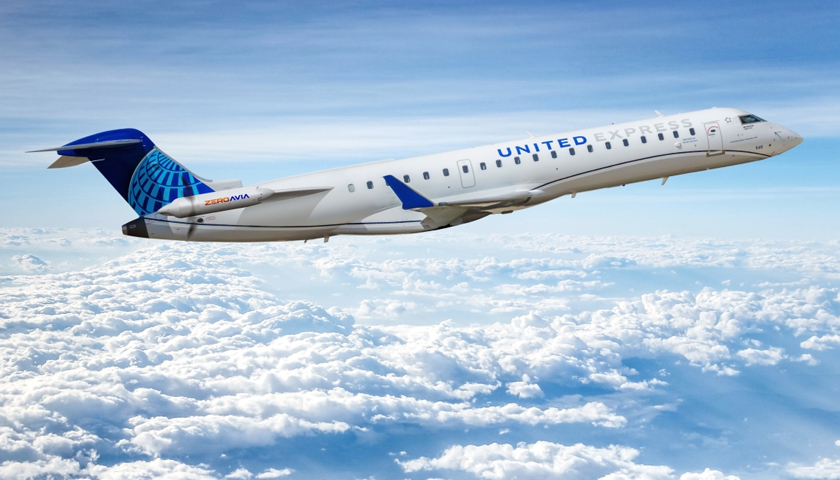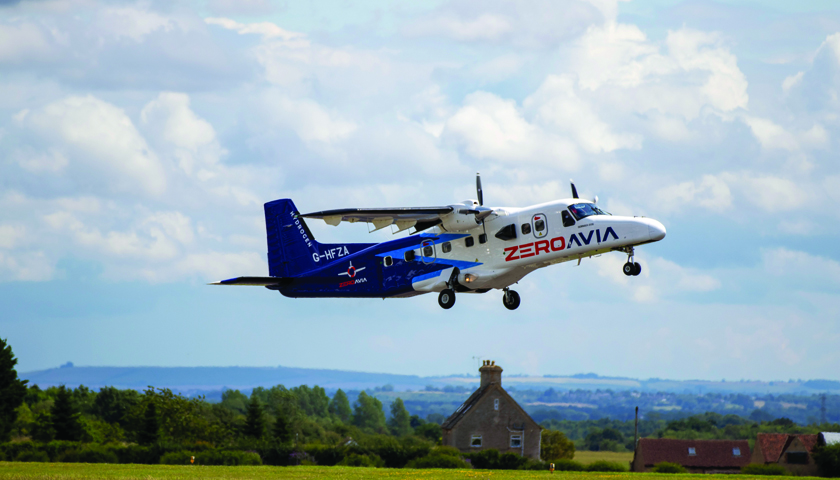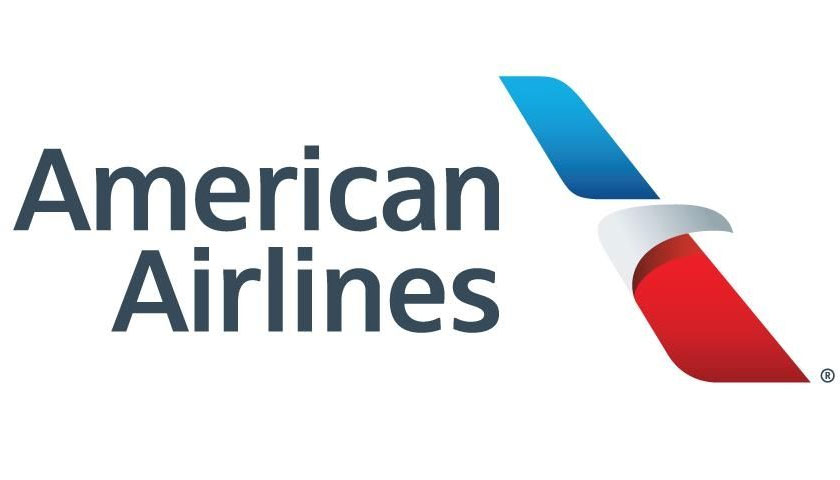United recently became the largest airline to invest in zero-emission, hydrogen-electric engines for regional aircraft, the latest move toward achieving its goal to be 100% green by reducing its GHG emissions 100% by 2050, without relying on traditional carbon offsets.
Through a new equity stake in ZeroAvia, a leading company focused on hydrogen-electric aviation solutions, United expects to buy up to 100 of the company’s new zero-emission, 100% hydrogen-electric engines (ZA2000-RJ). The engine could be retrofit to existing United Express aircraft as early as 2028. One potential use is on United’s unique CRJ-550, the only 50-seat aircraft which offers first class and other premium amenities, making this leading aircraft even better and marking another first for United.
“Hydrogen-electric engines are one of the most promising paths to zero-emission air travel for smaller aircraft, and this investment will keep United out in front on this important emerging technology,” said Scott Kirby, CEO of United. “United continues to look for opportunities to not only advance our own sustainability initiatives but also identify and help technologies and solutions that the entire industry can adopt.”
Hydrogen-electric engines use electricity created by a chemical reaction in a fuel cell to power an electric motor instead of burning fossil fuel. Because no fuel is burned, there are no climate-harming emissions or carbon released into the atmosphere when the engines are operated.
The ZA2000-RJ is expected to be used in pairs as a new power source for existing regional aircraft. Under the agreement with United Airlines Ventures, United will pursue a conditional purchase agreement for 50 ZeroAvia ZA2000-RJ engines, with an option for 50 more, enough for up to 50 twin-engine aircraft which would be operated by United Express partners once they are fully developed and certified by regulators as soon as 2028.
“This support by United, alongside our other forward-thinking partners, demonstrates the importance of hydrogen-electric propulsion in the future of sustainable flight,” said Val Miftakhov, founder and CEO and of ZeroAvia. “The United Express routes powered by hydrogen-electric aircraft will be enabling large numbers of passengers to take zero-emission flights well within this decade.”
ZeroAvia is accelerating development of its ZA2000 engine and will soon begin ground tests of its ZA600 in a 19-seat aircraft, with the aim of entering commercial service with this smaller engine by 2024. ZeroAvia’s roadmap calls for it to develop hydrogen-electric propulsion for progressively larger aircraft. In September 2020, ZeroAvia completed the world’s first hydrogen fuel cell powered flight of a commercial-grade aircraft. ZeroAvia has already secured experimental certificates for two prototype aircraft from the FAA in the United States and the Civil Aviation Authority in the U.K. and has passed significant flight test milestones.
On December 1, United made aviation history by operating the first passenger flight using 100% sustainable aviation fuel, from Chicago to Washington, D.C. The flight showcased the safety of sustainable aviation fuel and the potential for a dramatically reduced carbon footprint for aviation.
Earlier this year, United announced a record-setting agreement to purchase sustainable aviation fuel from Alder Fuels and has now committed to purchase more than twice as much of this fuel as the rest of the world’s airlines combined.
These investments and the accomplishments below make United the global aviation leader in supporting technology used to sustainably power commercial aircraft:
- United recently agreed to purchase 1.5 billion gallons of SAF from Alder Fuels – enough to fly more than 57 million passengers and is also an investor in Fulcrum BioEnergy, where United has an option to purchase up to 900 million gallons of additional SAF.
- In July 2021, United Airlines Ventures (UAV) announced that along with Breakthrough Energy Ventures and Mesa Airlines, it has invested in electric aircraft startup Heart Aerospace. Heart Aerospace is developing the ES-19, a 19-seat electric aircraft that has the potential to fly customers with zero emissions when powered by renewable electricity.
- In July 2021, Air Transport World magazine named United its Eco-Airline of the Year for the third time.
- In June 2021, as part of its agreement with Boom Supersonic, United announced plans to purchase 15 of Boom’s “Overture” airliners (with an option for 35 more). Slated to carry passengers in 2029, the net-zero aircraft plans to fly on 100% SAF.
- In February 2021, United announced an agreement to work with Archer Aviation to accelerate the development and production of their electric aircraft – an urban mobility solution that has the potential to serve as an ‘air taxi,’ giving United customers another opportunity to reduce their carbon footprint before they even board a United flight.
- In 2020, United became the first airline to announce a commitment to invest in direct air capture, a carbon capture and sequestration technology. United remains committed to investing in carbon capture and sequestration as a key pathway to achieving its climate goals.
- In 2019, United operated the Flight for the Planet, which represented the most-eco-friendly commercial flight of its kind in the history of commercial aviation.
- In 2018, United became the first U.S. airline to commit to reducing its GHG emissions, by 50% by 2050. This goal has since been superseded by the airline’s 100% green commitment.
- In 2016, United became the first airline globally to use SAF in regular operations on a continuous basis with SAF from World Energy.



